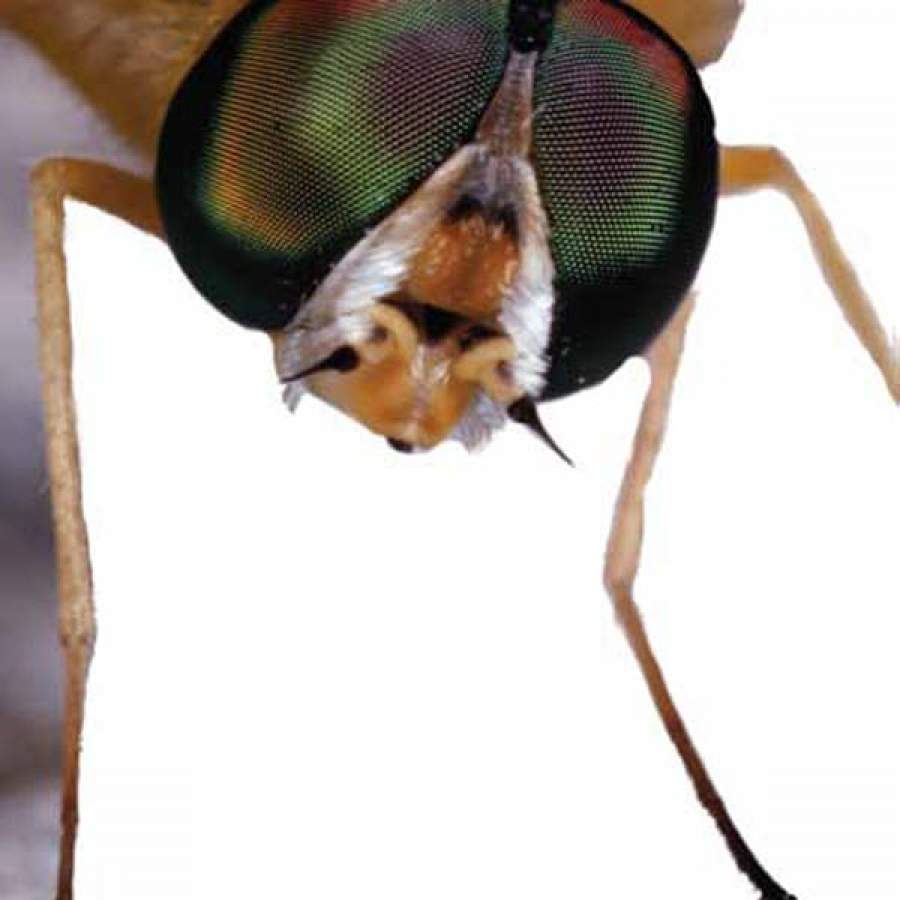Bzzzzz. Swat. Itch. Scratch. Bleed. Aren't insects wonderful? How they made it onto Noah's Ark remains a mystery to me. For you, the traveller, they may just be a nuisance or they may transmit a serious disease.
Let me count the bugs: There are mosquitoes that spread malaria, West Nile virus, yellow fever, filariasis and dengue fever. Black flies in the tropics (but not in cottage country) pass on onchocerciasis or river blindness. Tsetse flies transmit sleeping sickness, and sandflies carry leishmaniasis. Ticks can give you such favourites as Lyme disease, tick typhus, Rocky Mountain spotted fever and encephalitis. Even lice can be a problem. Perhaps the most disgusting of all is the so-called "assassin bug" in South America; it transmits Chagas' disease by defecating on you while it feeds.
If that list is so long as to make you reconsider your travels, just remember that we can contract some of these diseases here at home!
While insect-borne diseases can be deadly, the good news is that there are preventative measures you can take: common sense can go a long way towards keeping you healthy on your travels. In addition to taking precautions such as anti-malarials and appropriate inoculations, there are many ways to lessen the risk of insect bites, and prevent the infections that might follow.
Some methods are more practical than others. For example, common advice is that you wear long sleeves. But spend some time in tropical Africa or Central American rainforests and you'll learn that, at times, this may be somewhat unreasonable. On the other hand, covering up while shlepping through tick-infested game reserves in southern Africa is not unreasonable. Tuck in your shirt, and tuck your pants into your socks. Light coloured clothing is also usually recommended, though I have yet to suggest fashion decisions based upon this fact. Insects may be attracted to fragrances, so skip the perfume and aftershave.
Staying indoors at times of day when the insects are biting is another option. This is not as easy as it sounds. For example, the Anopheles mosquito, which is one family of species that can transmit malaria, bites between dusk and dawn; the Aedes, which is the vector of dengue fever, is a daytime feeder.
Mosquitoes vary in their breeding, as well as their dining habits. Anopheles prefer large bodies of stagnant water; Aedes prefer puddles. If there happens to be a dengue outbreak in your neighbourhood, get rid of all potential breeding spots around your house, such as old tires, planters, pots and empty Tim Horton's cups.
One main line of defense against all biting creatures is to use insect repellents containing DEET. DEET has the undeserved reputation of being bad for almost anything—the environment, your children, your brain and your leather watchband. In fact, it is exceedingly safe if used properly.
My somewhat facetious advice to travellers is usually, "Don't drink it, keep it out of your eyes, don't bathe your baby in it, and keep it off synthetic materials, like your watchband and iPod." When you encounter the air in Manila or Mumbai you will realize that the environment has much bigger problems than DEET!
In Canada, insect repellents containing DEET are available in concentrations of up to 30 percent, and should give you between 4 and 6 hours of protection. Do, seriously, wash it off when you no longer need protection. If you need daytime protection from both insects and the sun, apply sunscreen about twenty minutes before your repellent. Combining the two is not recommended.
For those who don't tolerate DEET, or just don't want to use it, there are some other options. These include citronella (lotion, candles, coils), Avon's Skin So Soft, lemon eucalyptus oil and soybean oil. These may be less effective than DEET, or offer shorter protection, and may not always be available where you live. Other popular, but likely useless, methods of avoiding those bites include bananas (eating them), vitamin B, wristbands, ultrasonic devices, and playing Seinfeld reruns during the night.
One very effective and highly recommended precaution is to sleep under a bed net impregnated with permethrin, a non-toxic, non-smelly compound. This simple measure saves thousands of children's lives each year. These are usually available - and may be less expensive - at your destination. Be sure to tuck the net under your mattress, and make sure that your windows and doors are well sealed (assuming you have them!)
A word about ticks: they transmit more infections than mosquitoes. Should you find one embedded in your leg, don't panic! It usually takes a couple of days of attachment before any infection is transmitted. The best way to remove it is to apply steady traction with some tweezers until it pops out. Be careful not to squish it in your bare fingers. Smothering ticks with shaving cream or using a blowtorch is not a good idea.
The take-home message here is, no surprise, try not to get bitten.
So consider bugs as just one of your many challenges when you travel abroad, right up there with the heat, the salads, and in my case, stumbling into open sewers.
For further information about bugs and the diseases they spread, check out The Centers for Disease Control and Prevention website.
Mark Wise is a family doctor in Toronto, specializing in travel and tropical medicine. He is the director of The Travel Clinic and acts as medical advisor to numerous NGOs and is on the board of Canadian Feed the Children. He has travelled to most of the places where you might consider volunteering.




